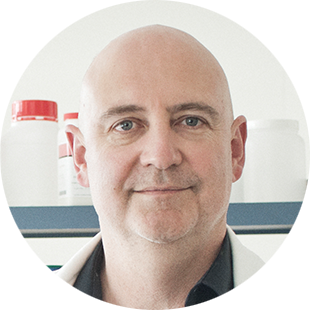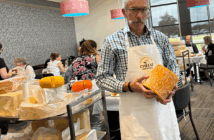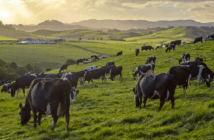By Professor Richard Newcomb, chief scientist at Plant & Food Research
The word natural is often used alongside food products, appealing to consumers wanting ‘clean labelling’ in the form of fewer, simple-sounding ingredients. However, all foods are comprised of many different chemical components.
A comprehensive list of these ingredients in a piece of fruit could be long and complex and include chemicals like glutamate and formaldehyde that occur naturally in foods. Information about the composition of many of our foods can be found in the New Zealand Food Composition Database.
We are still learning about what’s in our foods, how different classes of compounds are made and how they break down, how they can be used for flavour, and how foods are altered through cooking and digestion. Individual food components may also influence digestion – for example, lactose intolerance in people who don’t produce enough lactase enzyme.
As we gain greater insights into the composition of the foods we eat, we increase our knowledge of how foods, or combinations of foods, influence our health. Scientists are exploring how diet influences the kind of microbiota that live in our gastrointestinal tract. Our genetic makeup plays an important role in the composition of microbes that live in our body, however, our diet and external environment play a far bigger role in terms of developing a microbiome that delivers beneficial health outcomes. The relationship between diet and mood is also an area of interest and thought to be influenced by our microbiome. This expanding platform of microbiome knowledge is set to spur the development of innovative new pre-and pro-biotic foods to support gut health.
How the gastrointestinal tract senses and responds to nutritional information is another area of research that could affect the development of new foods, with sensors providing essential diet-related health information. A new highly sensitive electronic capsule with advanced gas-sensing could improve how gut disorders and diseases are diagnosed and treated and is being tested in Australia.
Along with developing sustainable, nutrient-rich foods, insights into the microbiome-mediated relationship between food and health will catalyse the innovation of new foods and/or personalised nutrition.
Professor Richard Newcomb is chief scientist at Plant & Food Research overseeing all aspects of science quality, strategic science, capability development and collaboration across the institute. He is also an honorary professor of evolutionary biology at the University of Auckland.






























































































